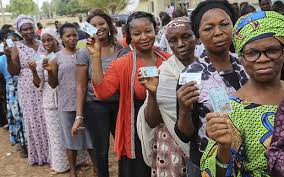As Nigeria looks ahead to the 2027 polls, a new debate has taken centre stage: should all major elections be conducted in a single day? From the presidency to governorships, national and state assemblies, the idea promises efficiency but raises difficult questions about logistics, transparency and trust.
Supporters of the proposal argue that one-day elections could reduce costs, simplify planning, and eliminate the repeated shutdown of economic and commercial life that occurs with staggered voting. They point to countries like the United States, Brazil, and Kenya, where millions of voters cast multiple ballots on the same day, often without major disruption. If those nations can manage it, they argue, Nigeria, with its growing democratic experience, should be able to do the same.
Proponents also believe it would strengthen credibility. By collapsing everything into one day, they say, opportunities for manipulation between phases are reduced. One election day, one verdict. In their view, Nigerians are politically mature enough to handle several ballot papers at once, given their voting patterns in past contests.
But sceptics warn that Nigeria’s realities are different. The Independent National Electoral Commission (INEC) already struggles with logistics under the current two-stage arrangement. With more than 176,000 polling units spread across a vast and sometimes difficult terrain, even the routine distribution of materials poses challenges. Adding more ballot papers and counting processes in the same limited timeframe could stretch the system to breaking point.
Others question whether condensing the exercise would necessarily produce more credible results. Would the same problems, delayed materials, malfunctioning technology, insecurity, and vote buying, suddenly disappear simply because the vote happens in one day? Critics argue that without strengthening institutions, funding and trust, the reform risks becoming cosmetic.
There are also practical concerns. Elections in Nigeria often involve moving materials by road, motorcycles, boats, or even animals in remote communities. In some states, officials travel for hours without leaving the same local government. To them, a one-day election is not just a bold reform; it is an unrealistic gamble.
Yet the demand for change is loud. Many citizens say they are weary of closing their shops or staying home twice in every cycle just to cast votes. Political parties and advocacy groups insist that early voting for essential workers, such as security personnel, observers and journalists, could help ease the pressure.
What is clear is that the idea touches on more than cost or convenience. It goes to the heart of how Nigerians see their democracy: whether it is nimble enough to adapt, whether institutions can rise above weaknesses, and whether voters’ trust can be rebuilt through innovation.
As the National Assembly debates the proposal, the country must decide if it is ready to embrace a reform that could reshape the entire electoral calendar. For some, one day might be the answer. For others, it could simply magnify old problems in new ways.


